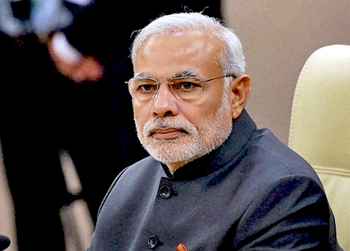Mumbai, Feb 13: In a veiled attack on Prime Minister Narendra Modi after BJP's rout in Delhi Assembly polls, Shiv Sena on Friday said a "hero of politics" should not be under the misconception of having unstinted support of the people.
 "It is impossible to say whose wave will sweep away whom in the future...Every hero of politics should tread with caution...The people of this country are supreme. One should not think that one has an unstinted support of people," an editorial in Sena mouthpiece 'Saamana' said.
"It is impossible to say whose wave will sweep away whom in the future...Every hero of politics should tread with caution...The people of this country are supreme. One should not think that one has an unstinted support of people," an editorial in Sena mouthpiece 'Saamana' said.
"Having an excessive pride of simplicity and honesty is also not right. "(Arvind) Kejriwal's brand is his muffler. But he should not have any problem in keeping the muffler away when it has no use," it further said.
"According to reports, Prime Minister Narendra Modi had worn a branded Rs 30-35 lakh suit when (US President Barack) Obama had come to India. Kejriwal should make sure his muffler too does not become branded like the suit," the Sena said.
A day after the BJP was decimated in the Delhi Assembly elections, the Sena had torn into its ally saying that the "broom—wielding" AAP had reduced the BJP to "dirt" in the election and virtually demanded that Modi accept the blame for it.
"The entire election campaign was run in the name of Modi. Anna Hazare said this is Modi's defeat. We too feel the same. The way the party attributed its success in other states to Modi, they should do the same for Delhi," it had said.





Comments
Add new comment